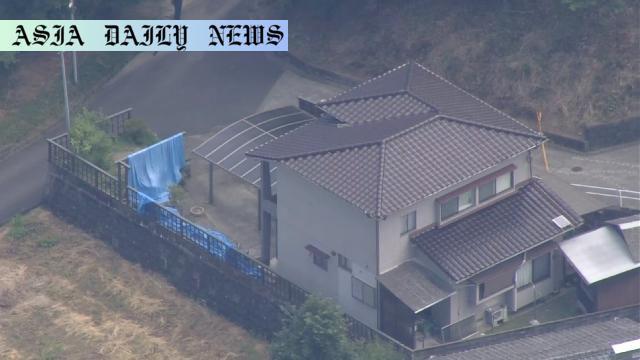Murder: Vietnamese national arrested for killing Japanese teacher Mukumoto Maiko and robbery in Saga Prefecture.
A Vietnamese national was arrested for suspected murder and robbery in Saga Prefecture, Japan.
The incident involved the killing of a Japanese language teacher and injuring her elderly mother.
The suspect, a technical trainee, fled the scene but was later captured by police.

The Incident: A Grim Case of Murder and Robbery
In a deeply unsettling event, the quiet city of Imari in Saga Prefecture, Japan, became the scene of a horrific crime. On Saturday, a Vietnamese national reportedly attacked two women in their home. Mukumoto Maiko, a 40-year-old Japanese language teacher, tragically lost her life during the attack. Her elderly mother, in her 70s, survived but sustained injuries, including wounds to her neck. This violent crime has left the local community in shock and mourning. The assailant, armed with a knife-like weapon, not only inflicted physical harm but robbed the victims of more than 10,000 yen, approximately 68 USD. Following the crime, the perpetrator fled the scene, causing widespread alarm in the otherwise tranquil neighborhood.
According to police reports, 24-year-old Dam Duy Khang, a Vietnamese technical intern trainee residing nearby, has been arrested in connection with the crime. Investigators believe he gained access to the home by ringing the intercom, which led the victims to open the door. Once inside, he threatened the victims, demanded cash, and subsequently committed the brutal assault. The victim’s mother revealed that she did not personally know the attacker, further adding to the mystery surrounding his motives.
Community Impact and Ongoing Investigation
The violent nature of the crime has left an indelible mark on the residents of Saga Prefecture. Mukumoto’s death has not only devastated her family but has also caused concerns among her students and colleagues in the Japanese language education community. For them, Mukumoto wasn’t just a teacher; she was a mentor and a figure of guidance. Her untimely demise has sparked conversations about safety and community vigilance.
The Saga Prefectural Police have initiated a comprehensive investigation into the suspect’s background and potential motives. According to initial inquiries, Khang had been residing locally as part of Japan’s technical trainee program, which often attracts workers from overseas, particularly Southeast Asia. However, a darker side of cultural isolation and workplace exploitation associated with this program has been criticized by human rights groups. The circumstances surrounding the suspect’s life and well-being before the incident are now under scrutiny to understand if stress, frustration, or external influences played a role. The investigation could lead to broader discussions about migrant worker support systems in Japan.
A Broader Discussion on Social Safety and Inclusion
Although Japan is known for its low crime rates, isolated incidents like these serve as reminders of the vulnerabilities that exist in neighborhoods. Unlike the bustling streets of Tokyo, smaller cities and towns often have more tightly-knit communities. A sudden act of violence feels even more jarring in these settings.
The incident also raises unanswered questions about the integration and treatment of foreign workers in Japan. While technical training programs aim to address labor shortages, they often fail to provide adequate support for individuals to navigate cultural and institutional challenges. Khang’s crime could reflect both a personal breakdown and systemic shortcomings. Social experts are likely to push for deeper reforms and measures to ensure both public safety and better integration efforts going forward.
Commentary
The Tragedy in Saga: Reflection on a Violent Incident
The murder of Mukumoto Maiko in Saga Prefecture is a somber reminder of the fragility of peace and safety that many often take for granted. Such incidents, while rare in Japan, strike an emotional chord, shaking communities to their core. This story, involving a foreign national, sparks layered questions not only about the specifics of the crime but also about the broader challenges faced by migrants and locals alike in a multicultural society.
Systemic Issues and Migrant Pressures
Being a foreign worker in an unfamiliar country is not without hardships. Dam Duy Khang, now accused of this horrifying act, displayed actions that could hint at personal struggles or cumulative systemic pressures. Japan’s technical internship program has provided opportunities for many from Asia, but critics often talk about its pitfalls, including isolation, underpayment, and mistreatment. One wonders if these factors could have exacerbated Khang’s state of mind, leading to such an unfathomable crime. Nonetheless, personal frustrations can never justify acts of violence, and justice must take its course.
Balancing Safety and Human Rights
This incident is a call for policymakers to reevaluate their priorities. While ensuring public safety is paramount, there must also be an honest conversation about creating inclusive environments for all residents, domestic and foreign alike. Addressing grievances before they manifest into extreme actions will benefit not just migrant workers but Japanese natives too. Additionally, greater emphasis on mental health, social support, and conflict resolution within Japan’s migrant workforce environment could mitigate future tragedies.


